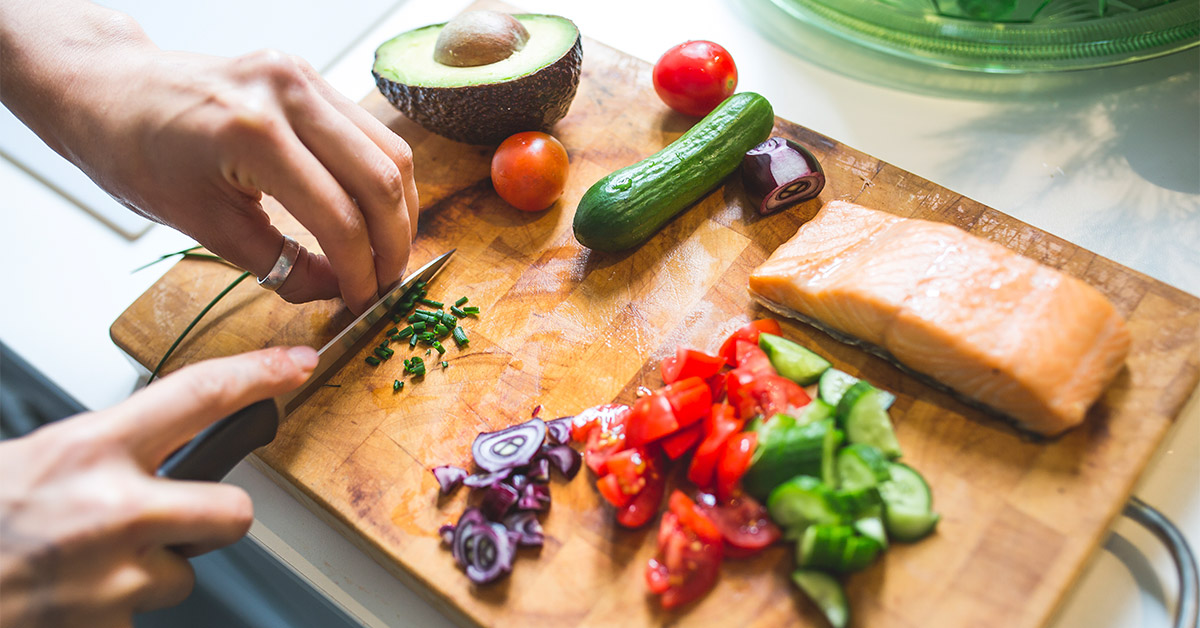Staying active and eating healthy during pregnancy isn’t always a smooth journey. First trimester fatigue and morning sickness, along with lovely ailments that come later — like back pain — make it difficult to work out and opt for healthy choices.
Yet it’s known that maintaining healthy pregnancy habits has many benefits. It can help make for an easier labor, help you lose postpartum weight faster, and give you more energy throughout your pregnancy.
Wholesome meals and exercising are also good for your baby. A new study even finds that weight gained during a pregnancy can impact a child’s cardiometabolic health later in life.
But knowing these facts doesn’t make staying healthy easier. If you’re like me, you’ll crave ice cream and french fries — not salad. And it’s likely you’ll be feeling too queasy to hit the gym.
Without a doubt, staying healthy during pregnancy requires extra discipline. But there are tactics I found helpful for motivating me to eat well and exercise throughout the long months.
Here are six ways I kept myself energized and active. (Plus, common pregnancy health myths debunked!)
1. Examine your diet to understand your cravings
Yes, pregnancy cravings are real. During the first half of my pregnancy, I longed for juicy cheeseburgers. As a nearly full-time vegetarian until pregnancy, this meat-craving behavior was unusual.
While cravings can’t always be explained, we can look to the nutrients our bodies might be needing.
For me, maybe I needed more protein, fat, and iron — three nutrients found in red meat. Although cheeseburgers are easy to eat for every lunch and dinner, I knew the long-term effects wouldn’t be the best for me and my baby.
I made an effort to prepare high-protein meals, including recipes with chicken, fish, and beans. Most of the greasy restaurant cheeseburgers I wanted were replaced with leaner, hearty alternatives. These wholesome meals helped curb my cravings by keeping me full and satisfied.
To ensure you and your baby get what you need, your diet should include several minerals and nutrients — namely calcium, iron, and folate.
2. Ease your mind for better sleep
From worrying about something going wrong to wondering if you’ll be a good parent, pregnancy can be an emotional rollercoaster. During my third trimester, I’d lay awake in bed at night praying my baby would kick so I knew they were okay.
To give my mind rest — and, ultimately, my body — I tried a few different techniques.
Sometimes I’d meditate for 10 to 15 minutes before bed to calm my mind. Other times I would reach out to new and expectant mamas for encouragement and to share my anxieties.
If I had a list of to-dos spinning in my head, I’d jot them down in my phone so they weren’t distracting me from drifting off to sleep.
Above all, establishing a relaxing routine before bed allowed me to find mental and emotional peace — ensuring both baby and I got the recharge we needed
3. Make yourself move every day
Even though I exercised regularly before becoming pregnant, I had trouble finding the energy and motivation during pregnancy. So I committed to moving at least once per day, and it was the best decision I made.
It could be a walk at lunchtime, a morning swim, or a stretch on my yoga mat while I caught up on episodes of “This Is Us.” Sometimes if I was short on time, I’d drop down for 20 lunges while I cooked dinner.
And there were days I skipped exercising. I tried not to beat myself up and would start again the next day.
I found that when I pushed myself onto my yoga mat or down the street for a stroll, I felt more energized and slept better. I also felt more prepared for the athletic event that is labor.
While most exercises are safe, especially those you did prior to becoming pregnant, there are a few types of workouts you should steer clear of. Any activity where you risk falling, like rock climbing or skiing, should be avoided. You should also be cautious of high altitudes and any exercises that are done while lying flat on your back.
As a general exercise rule, listen to your body and remember you’re working out to stay healthy — not break any records.
4. Limit your sugar
In the second half of my pregnancy, sugar was my main desire. However, a recent study found that increased sugar consumption has a negative effect on your child’s memory and intelligence. While I didn’t deprive myself of all sweets, I did make a plan.
For me, that meant avoiding purchasing treats in the first place. I knew that if I bought a box of cookies — which I eyed every time I went to the grocery store — I would devour them in one sitting.
This method was effective because instead of having to resist the cookies over and over, there were none to resist!
Instead, I quenched my sweet tooth with whole food options like fresh apples and dried mangos.
For you, this might be opting for a brand with less processed ingredients or buying smaller packages instead of wholesale sizes. It’s not about avoiding sugar altogether, but creating a more thoughtful snacking routine.
5. Find a water bottle you love
Hydration is essential, especially when you’re pregnant. Water plays an important role in the development of your little one and also helps to form the placenta and the amniotic sac.
Dehydration during anytime can cause problems, but during pregnancy it’s especially important to avoid.
The Institute of Medicine recommends around 10 cups (2.3 liters or 77 ounces) of total liquid per day while pregnant. To help me reach the necessary water intake, I carried around my Nalgene water bottle wherever I went. Look for a water bottle you enjoy drinking out of.
If you get tired of the plain water taste, add produce for flavor like cucumbers, strawberries, lemons, or limes. Staying hydrated keeps your energy levels up and helps relieve pesky pregnancy symptoms like constipation.
6. Take a break
Being healthy while pregnant doesn’t mean being superwoman. Listen to your body and be sure to rest when you need it — whether that means taking a nap, lying on the couch with a book, or heading to bed early.
By giving your body a break, you’re ensuring your little nugget continues to grow and that you’re saving up energy for tomorrow’s activities.
Myth 1: You can’t eat seafood
The mercury levels in fish make them a talking point for pregnancies. Most fish, according to the FDA, are safe if they’re not consumed in abundance. Some of the safe choices include:
- canned tuna
- salmon
- catfish
- crab
There’s a lot of benefits to seafood, like healthy fats which aid in a baby’s development. Just cap your seafood intake to 340 grams a week, and avoid raw sushi to limit your risk of exposure to certain bacteria.
Myth 2: You should avoid exercise and exertion
If you’re healthy and have the go-ahead from your physician, it’s safe to continue doing most types of exercise, says the American College of Obstetricians and Gynecologists.
Some risks are associated with certain exercises — like horseback riding and contact sports — but that doesn’t mean you should avoid physical activity altogether. Regular exercise is extremely beneficial for both mom and baby, and can even alleviate pain points of pregnancy.
Myth 3: You’re not allowed to enjoy hot baths
Based on an old tale that people who are pregnant should avoid heat stress, many still believe they can’t soak in a hot bath.
New recommendations, however, state that hot baths and exercise are safe during pregnancy, as long as your body temperature doesn’t go above 102.2°F.
PS. You’re also allowed to enjoy sex! It’s safe and won’t hurt the baby. Learn which positions are the best.
Myth 4: You can’t drink coffee
While it was previously believed that caffeine could cause a miscarriage, research shows that one to two cups per day is entirely safe. So no need to ditch your morning latte as your go-to energy boost!
Myth 5: You’re eating for two
The popular mantra “Go ahead, you’re eating for two!” can cause extra weight gain if we take it to heart. Instead, staying within the recommended range for weight gain will make weight loss easier post-birth and give you increased energy throughout your pregnancy.
Remember, everyone’s journey with pregnancy is different. Keep these tips in mind. At the end of the day, don’t forget to listen to your body.





